You guys have asked me—
"Why do you keep handing out therapy in a book blog?"
"Books are not therapy."
And for the first time, I was shook. But not BookShook.
Because the BookShook already know.
Books are therapy. The best, most effective, most soul-rearranging therapy ever.
And if you don’t see that…
I think you got lost.
Am I a Therapist? Nope.
Do I pretend to be? Also nope.
What do I do?
I talk about books. I talk about the themes buried inside them—the ones that shape us, wreck us, push us toward who we could be. I tell stories about what could be.
Because I know what it’s like to close a book and feel like a different person.
To find a piece of myself in a fictional world and wonder how I ever lived without it.
To sit with a book in my lap and whisper, What now? What next? What if? How can i be better?
And I never want you to have to whisper what if about your own life.
"The Saddest Words in Tongue and Pen…"
John Greenleaf Whittier wrote,
"For all sad words of tongue and pen, The saddest are these, 'It might have been.'"
It might have been.
The chances we were too afraid to take.
The dreams we left to rot.
The version of ourselves we could have been, if only we had chosen differently.
That’s what I’m fighting against.
Because books don’t just tell stories. They warn us. They dare us.
They hand us a character and whisper—Will you make the same mistake? Will you let your fear win? Will you look back on your life and wonder what might have been?
I don’t want that for you.
This is not just a book blog. It’s a fight against the slow decay of what might have been.
The Science of Book Therapy (Yes, There’s Science.)
Fine. Let’s talk facts.
📌 Reading builds emotional intelligence.
Studies show that reading fiction strengthens empathy, making us better at understanding ourselves and others. (Science says books make you less of a mess. Imagine that.)
📌 Stories help rewire the brain.
Neuroscientists have found that the brain experiences fiction like reality. When we read about a character’s struggles, our brain mirrors that struggle as if we lived it ourselves. (Which means, yes—your book hangover is real.)
📌 Narrative therapy is an actual thing.
Therapists use storytelling to help people reframe their lives, reshape their perspectives, and find meaning in their struggles. (Which sounds an awful lot like reading, doesn’t it?)
So no—books aren’t just escape.
They are reconstruction.
They break us open, then build us back stronger.
They teach us how to live, how to fight, how to become.
That sounds like therapy to me.
So, Are You Sure You’re in the Right Place?
If you just want book reviews—go to Goodreads.
If you think stories are just words on a page—this probably isn’t for you.
But if you’ve ever read a book that ruined you in the best way?
If you’ve ever clutched a novel to your chest and whispered, I needed this?
If you’ve ever looked at a character’s arc and thought, That could be me—
Then you’re right where you belong.
📖 Welcome to BookShook.
We’re not just readers. We’re becoming.
Do you want more Not Book Therapy?




Leave a comment